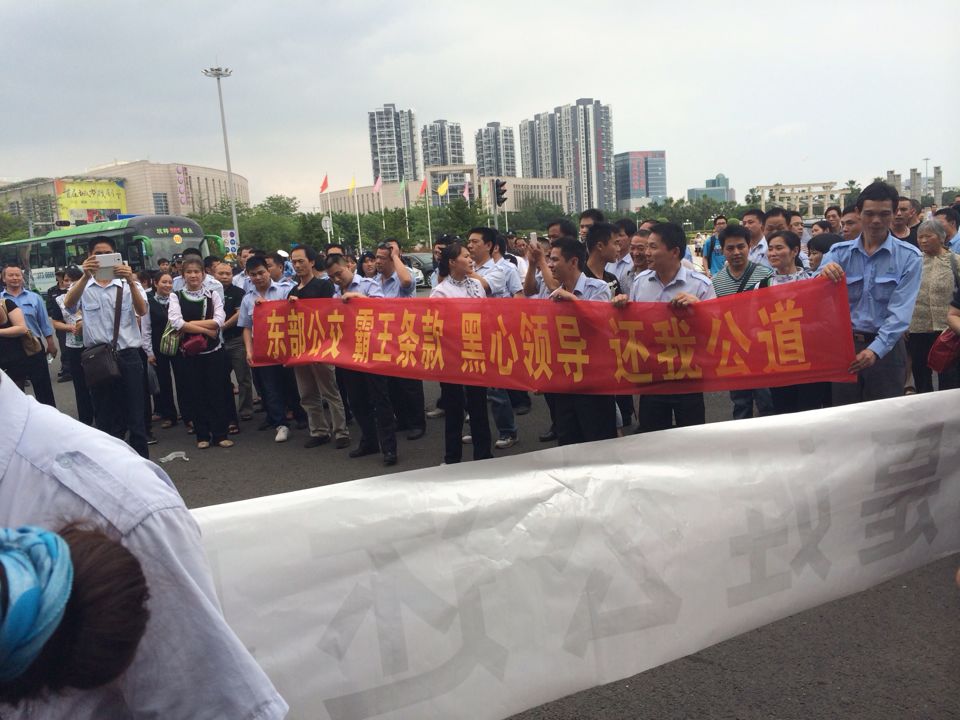Thousands of workers at Shenzhen East Public Transport Co. staged a mass protest outside the district government on 20 April, demanding a more transparent wage calculation system, overtime payments in arrears, fewer working days, and the abolition of a penalty scheme that forced drivers to pay for any vehicle damage caused by accidents or face dismissal.

The demonstration was largely peaceful until it was met by hundreds of police armed with shields and batons who surrounded the workers and forced them back to Civic Square, near the Longgang district government building. Five workers were reportedly detained and one driver, Peng Lin, was said to have suffered a heart attack after his arrest and remains in critical condition.
“They were very violent and pushed us around,” said 19-year-old Ms Wang (psuedonym), who has been working as a conductor for over a year and is active on Chinese social media, gathering and updating photos and videos of the strike. “One of my colleagues only avoided being thrown into the police truck by claiming she was pregnant.”
The bus company, which operates about 200 lines in the city, has so far refused to negotiate with the workers. The day after the protest, while Ms Wang was in her cramped, noisy dormitory in the port district of Shekou, company representatives were dragging workers out of their dormitory and forcing them back to work as the police stood aside and watched.
One 50-year-old driver said the workers had resorted to strikes and protest action out of desperation:
Human beings just cannot stand these long shifts and heavy work load. Imagine getting up at six in the morning and coming home after ten at night, driving 320 kilometres across five districts, stopping at over 100 traffic lights and 60 stations, and still having to worry about earning a living wage. On top of that, your shift for tomorrow is one hour earlier!”
“I could go on for three days giving you negative examples of the company’s practices,” he said “But I also need three days to think about it if you want to hear a positive one.”
Ms Wang said the bus strike was well supported and that they were joined by drivers from the Shenzhen West Bus Co on Monday. “I will continue to get the news out whenever I can,” she said. “More and more workers on other lines and other bus companies are showing their support, how can we not stand up for ourselves?”
CLB’s latest research report on the workers’ movement in China documented numerous bus strikes, mainly concentrated in Guangdong, nearly all of which were caused by similar complaints over low pay, poor working conditions and abusive management.
All bus company employees paid five-yuan each month in “trade union fees” but none of the drivers who talked to CLB, knew anything about the union. The Shenzhen Federation of Trade Unions, under which the company union should be registered, has not commented on the strike.
